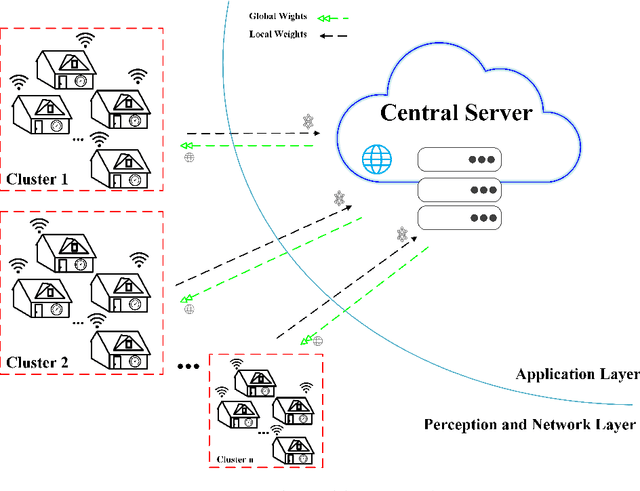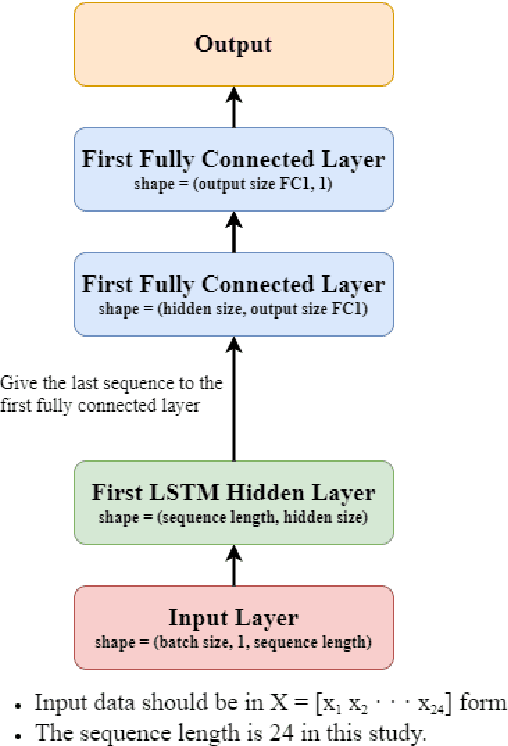Nastaran Gholizadeh
Federated Learning with Hyperparameter-based Clustering for Electrical Load Forecasting
Nov 14, 2021



Abstract:Electrical load prediction has become an integral part of power system operation. Deep learning models have found popularity for this purpose. However, to achieve a desired prediction accuracy, they require huge amounts of data for training. Sharing electricity consumption data of individual households for load prediction may compromise user privacy and can be expensive in terms of communication resources. Therefore, edge computing methods, such as federated learning, are gaining more importance for this purpose. These methods can take advantage of the data without centrally storing it. This paper evaluates the performance of federated learning for short-term forecasting of individual house loads as well as the aggregate load. It discusses the advantages and disadvantages of this method by comparing it to centralized and local learning schemes. Moreover, a new client clustering method is proposed to reduce the convergence time of federated learning. The results show that federated learning has a good performance with a minimum root mean squared error (RMSE) of 0.117kWh for individual load forecasting.
 Add to Chrome
Add to Chrome Add to Firefox
Add to Firefox Add to Edge
Add to Edge